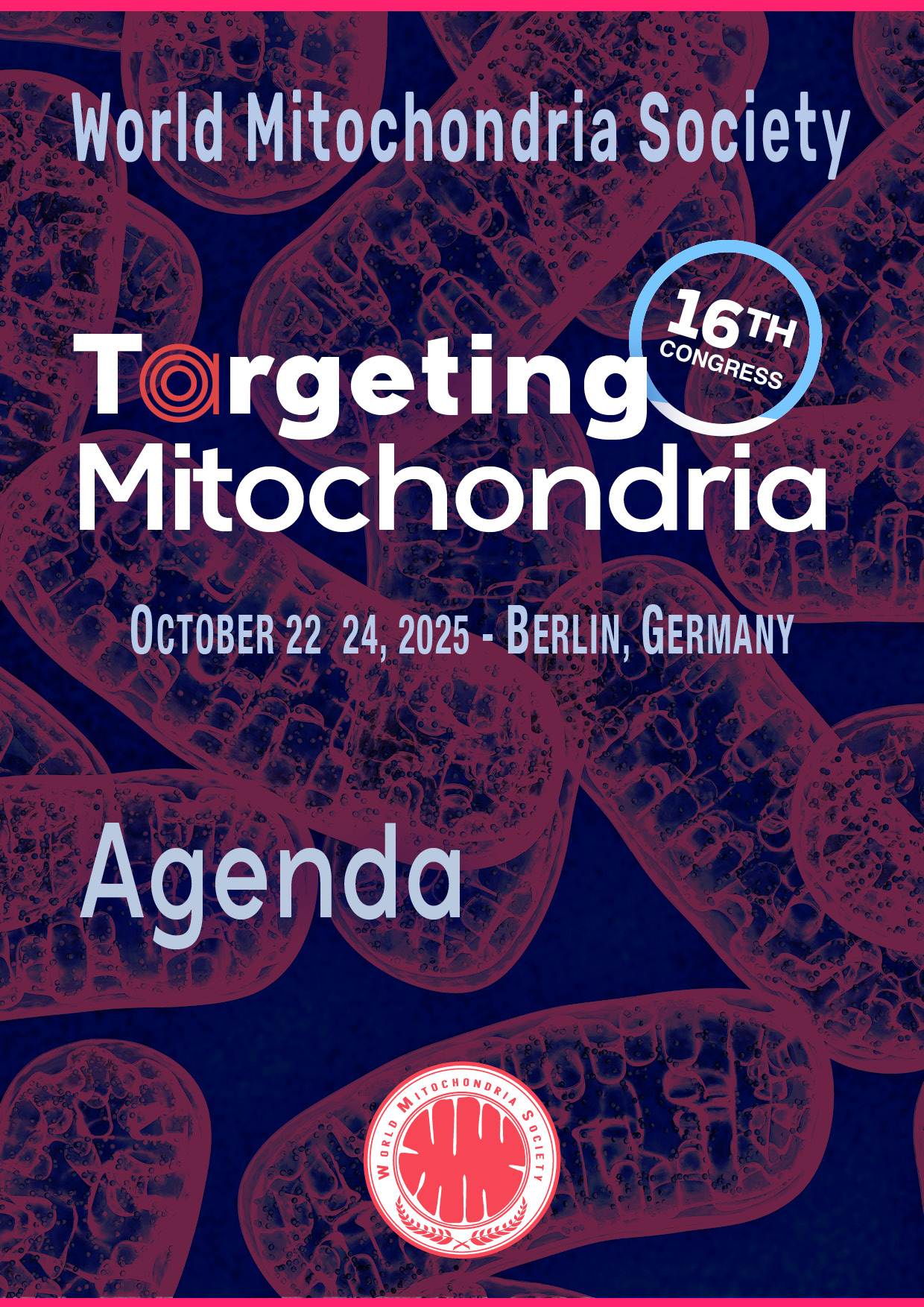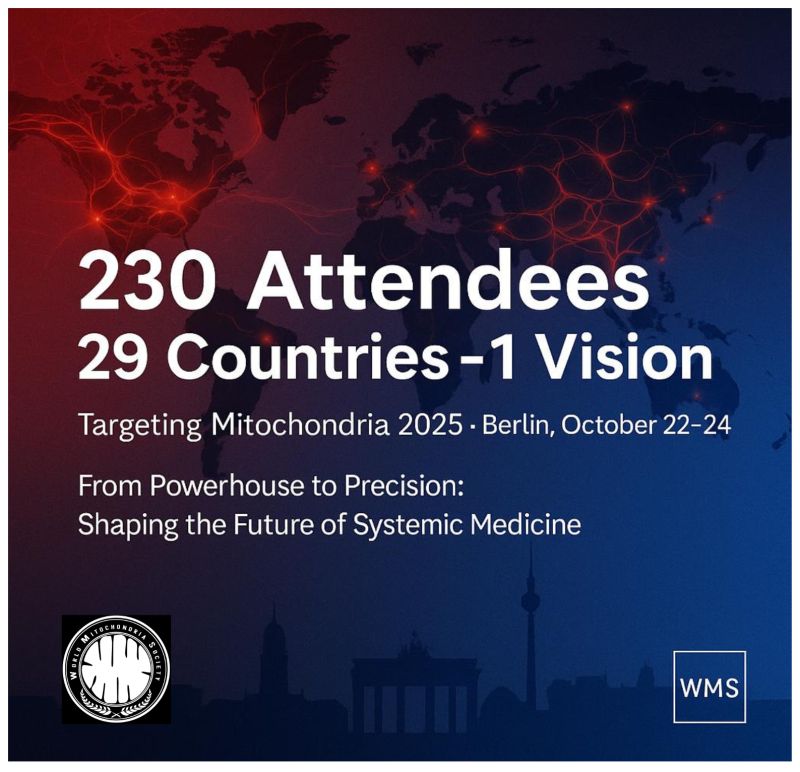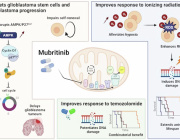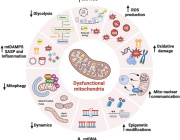Joomla! provides plenty of flexibility when displaying your Web content. Whether you are using Joomla! for a blog site, news or a Web site for a company, you'll find one or more content styles to showcase your information. You can also change the style of content dynamically depending on your preferences. Joomla! calls how a page is laid out a layout. Use the guide below to understand which layouts are available and how you might use them.
Understanding Horizontal Mitochondrial Transfer: The Good and the Bad

The World Mitochondria Society (WMS) is organizing a new online free webinar on the latest evidence on Horizontal Mitochondrial Transfer (HMT) and its dual role in health and disease. Recent discoveries highlight how HMT can support tissue homeostasis and metabolic function, while also contributing to tumor progression through intercellular communication between cancer cells and the stroma.
Webinar Details
Title: "Understanding Horizontal Mitochondrial Transfer: The Good and the Bad”
Date: April 9, 2025
Time: 16:00 CET
Presenters and Topics
 Dr. Andrés Caicedo, from the Universidad San Francisco de Quito (USFQ), will discuss the intricate dynamics of mitochondrial transfer in skin tissue and share insights into therapeutic applications of mitochondrial transplantation.
Dr. Andrés Caicedo, from the Universidad San Francisco de Quito (USFQ), will discuss the intricate dynamics of mitochondrial transfer in skin tissue and share insights into therapeutic applications of mitochondrial transplantation.
 Dr. Estefanía Nova, from the Universidad de Concepción, will delve into how HMT influences tumor onset and progression, revealing potential avenues for cancer intervention.
Dr. Estefanía Nova, from the Universidad de Concepción, will delve into how HMT influences tumor onset and progression, revealing potential avenues for cancer intervention.
This webinar also serves as a preview to the hands-on workshop “Mitochondrial Transfer and Transplantation: From Bench to Bedside”, led by Dr. Caicedo, which will take place on October 22, 2025, in Berlin — a pre-congress activity for the Targeting Mitochondria 2025 Congress.
Don’t miss this opportunity to deepen your understanding of the crucial, yet complex, process of horizontal mitochondrial transfer, and to learn how new discoveries could transform approaches to cancer therapy and beyond.
Thank You for Joining WMS Webinar: A Special Thanks to Prof. Howy Jacobs

The World Mitochondria Society sincerely thanks you for attending our webinar with Professor Howy Jacobs from Tampere University, Finland. We are especially grateful to Prof. Jacobs for sharing his groundbreaking insights into mitochondrial thermoregulation and its impact on cell biology, evolution, and disease. His presentation has opened new perspectives and challenges our understanding of mitochondrial function.
A special thank you to Prof. Jacobs for his invaluable contribution, and to all participants for being part of this important discussion. We look forward to continuing this exciting journey together!
Dr. Marvin Edeas, Université de Paris, INSERM U1016 Institut Cochin, and Founder of the World Mitochondria Society, shared his thoughts following the webinar:
"After listening to the excellent webinar of Professor Howy Jacobs on mitochondrial thermoregulation, it becomes clear that we must re-evaluate our current understanding of mitochondrial biology. For years, therapeutic strategies have been developed based on the premise that mitochondria operate at typical body temperature (~37°C).
However, if mitochondria actually function closer to 50°C, as you suggest, this changes how we should approach the design and delivery of mitochondria-targeted compounds.
If we fail to adapt our strategies to these new insights, we risk overlooking the true therapeutic power of the mitochondria.
Prof. Jacobs opened a new fascinating door to the world of mitochondria."
Watch the recorded Webinar Here.
About Howy Jacobs
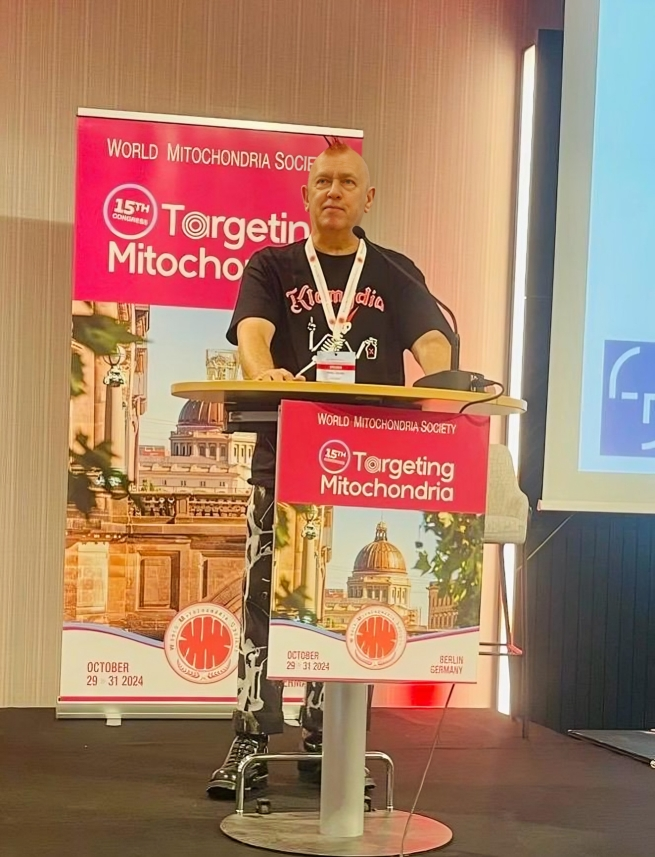 Prof. Howy Jacobs is a globally recognized expert in mitochondrial biology. In his recent work, A Century of Mitochondrial Research, 1922–2022 (Enzymes Book Series, 2023), he explores the fascinating journey of mitochondria—from their early recognition as bacteria-like structures to their pivotal roles in modern cell physiology. His contributions span biochemistry, genetics, pathology, and cell biology, shaping our current understanding of mitochondria.
Prof. Howy Jacobs is a globally recognized expert in mitochondrial biology. In his recent work, A Century of Mitochondrial Research, 1922–2022 (Enzymes Book Series, 2023), he explores the fascinating journey of mitochondria—from their early recognition as bacteria-like structures to their pivotal roles in modern cell physiology. His contributions span biochemistry, genetics, pathology, and cell biology, shaping our current understanding of mitochondria.
Targeting Mitochondria 2025 Speakers & Sessions
Day 1 - Wednesday October 22, 2025
Workshops
Workshop 1: How to Evaluate Mitochondria Function?
Naïg Gueguen, Mitovasc Institute, Centre Hospitalier Universitaire d'Angers, France
Workshop 2: Mitochondria Transplantation: From Theoretical to Clinical Applications
Andrés Caicedo, Universidad San Francisco de Quito, Ecuador
Day 2 - Thursday, October 23, 2025
Congress Sessions
Targeting Mitochondria 2025 Keynote Speech
• Nick Lane – Mitochondria and the Meaning of Life
Session 1: Mitochondrial Dynamics in Health and Diseases: Mechanistic and Perspectives
• Marc Germain – Actin Dynamics In Mitochondrial Function: Implications For Cellular Homeostasis And Disease
• Yosuke Togashi – Immune Evasion through Tumor-Derived Mitochondrial Transfer
• Edmund Kunji – Targeting Mitochondrial Pyruvate Carrier: Impact on Future Metabolic Therapies
• Luca Gattinoni – Fighting Fire with Fire: Boosting T Cell Therapy by Intercellular Mitochondrial Transfer
• Joanna Rorbach – Mitochondrial Protein Synthesis: A Key on Health and Disease / Mitoribosomes and Disease
• Tatjana Kleele – Mitochondrial Dynamics: Steering the Future of Mitochondrial Remodeling in Health and Disease
• Florent Waltz – How Mitochondria Organize Their Powerhouse Machinery for Optimal Performance
Short Oral Presentations
Quantitative Cellular Characterization of Extracellular Mitochondria Uptake and Delivery
Gregory Lavieu, INSERM, Université Paris Cité, France
The Mitochondrial DNAJC Co-Chaperone TCAIM Reduces A-Ketoglutarate Dehydrogenase Protein Levels to Regulate Metabolism Wen Yang, Shanghai Jiaotong University, China
Can We Untie the Linkage Between Life Extension and a Decline in Healthspan via Healthy Mithophagy
Einav Gross, Hebrew University of Jerusalem, Israel
Mitochondrial Respiration Atlas Reveals Differential Changes in Mitochondrial Function Across Sex and Age
Fangluo Chen, Johns Hopkins University, United States of America
Session 2: Advances in Mitochondria: Insights, Debates, and Controversies
• Alessandro M. Morelli – Delocalisation of the Macromolecular Devices for Efficient ATP Synthesis in Extra-Mitochondrial Districts
Short Oral Presentations
Regulation of Respiratory Supercomplexes Through Inhibitory Cytochrome C Oxidase Y304 Phosphorylation Causes Mitochondrial Dysfunction in Diabetic Heart
Tasnim Arroum, Wayne State University, United States of America
Time-Restricted Feeding, Whole-Body Mitochondrial Synchronization and Health Status
Dylan Sarver, University of California Los Angeles, United States of America
Day 3 - Friday, October 24, 2025
Congress Sessions
Targeting Mitochondria 2025 Keynote Speech
• Adam Szewczyk – Targeting Mitochondrial Channels: Update and Strategies
Session 3: Emerging Trends and Innovations in Mitochondria Research
• Alessandro Prigione – Brain Organoids for Drug Discovery of Mitochondrial Neurological Disorders
• David Rizo Roca – Mitochondria and Creatine: Perspectives and Strategies
• Alberto Anel – Mitochondrial Cybrids: Advancing Precision Oncology
• Ayumu Sugiura – The Role of Mitochondrial-Derived Vesicles in Peroxisome Biogenesis
Session 4: Mitochondria medicine: Strategies to Target Mitochondria, Clinical Trials and Potential Mitochondria-Based Therapies
• Volkmar Weissig – Drug Development for the Therapy of Mitochondrial Diseases
• Kosuke Kusamori – Development of Mitochondria-Based Therapeutic Strategies for Disease Treatment
• Gökhan Burçin Kubat – Mitochondrial Transplantation: From Skeletal Muscle Atrophy to Human Clinical Advances and Perspectives
• Andrés Caicedo - Mitochondria Transplantation: From Theoretical to Clinical Applications
Short Oral Presentations and Innovations
MNRR1-dervied peptides, a promising therapeutic target for mitochondrial dysfunction syndromes
Lawrence Grossman, Wayne State University, USA
Advanced Strategies for Correcting Mitochondrial Mutations in Human Disease Models
Martijn Koppens, UMC Utrecht, Netherlands
Restoring Mitochondrial Quantity and Quality to Reverse Warburg Effect and Drive Tumor Differentiation
Jiangbin Ye, Stanford University, United States of America
Mitochondrial Transplantation as a Novel Therapeutic Strategy for Anthracycline-Induced Cardiotoxicity
Sofia Trigo Anca, Centro Nacional de Investigaciones Cardiovasculares, Spain
Targeting Mitochondria 2025 Awards
WMS Concluding Remarks
























